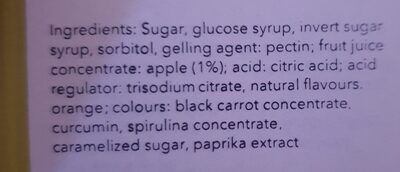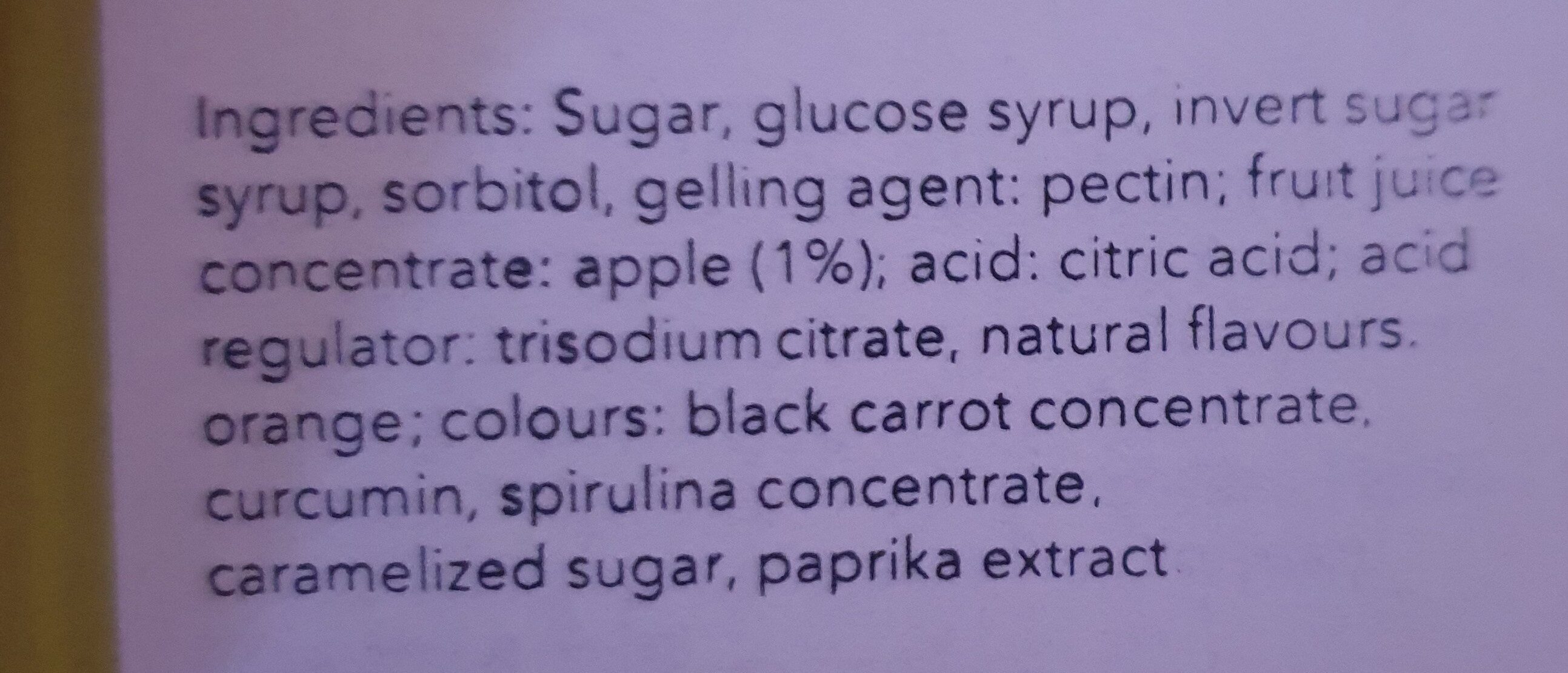jelly carrots - pimlico confectioners ltd
This product page is not complete. You can help to complete it by editing it and adding more data from the photos we have, or by taking more photos using the app for Android or iPhone/iPad. Thank you!
×
Barcode: 10781296
Brands: pimlico confectioners ltd
Countries where sold: An Rìoghachd Aonaichte
Matching with your preferences
Environment
Packaging
Transportation
Report a problem
Data sources
Product added on by openfoodfacts-contributors
Last edit of product page on by vaporous.
Product page also edited by inf.
If the data is incomplete or incorrect, you can complete or correct it by editing this page.






